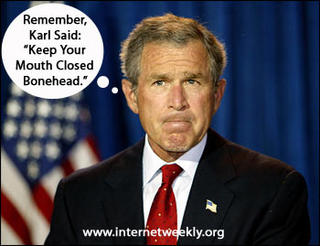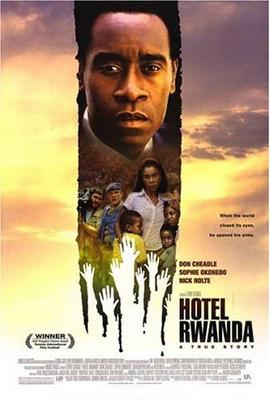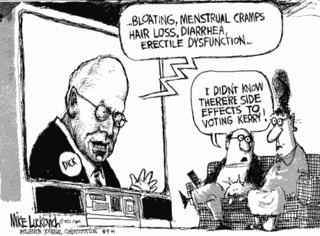MSNBCSports, flirting: Different view of blast suspects'We used to drink Coke and Fanta together,' says a soccer teammate
AP - Associated Press
Updated: 5:32 p.m. ET July 13, 2005LEEDS, England -
Every week, 22-year-old Shahzad Tanweer joined friends for games of soccer and his beloved cricket.
Hasib Hussain, 19, was a charmer who liked to flirt. He wore blue contact lenses and hair so long that one friend said it “fell like a curtain” atop his lanky frame.
Thirty-year-old Mohammed Sidique Khan worked as a counselor in a youth center. He seemed to spend more time in the gym than the mosque.
Such images and memories of bright young men have been crushed by a grim portrait given by police: It portrays them as Britons of Pakistani origin united by radical Islam who, with a fourth man, carried out suicide bus and subway bombings in London that killed at least 52 people and wounded 700.Police have not publicly confirmed the identities of any suspects, but British media have named three — all from Leeds. Their possible dual lives and what might have driven them to violence was the only topic Wednesday in this working-class northern city with a vibrant, multiethnic population.
Tanweer, whose Pakistani-born father owns a fish-and-chips shop, lived all his life in the city’s Beeston area. A devoted athlete, he studied sports science at Leeds Metropolitan University and planned to get involved in sports professionally. He showed up twice a week for pickup soccer games, said a teammate who gave his name only as Saj.
“He was normal. We used to drink Coke and Fanta together,” said Saj. “He was quiet. He was religious. He went to every mosque here. There are loads of mosques here.”It was unclear what might have driven the three men to the radical side, as
it was unclear how much contact they had with Muslim extremist groups or cells outside Britain.
Tanweer went to Lahore, Pakistan, this year to study the Islamic religion, and his family believed he was attending “some religious function” on the day of the bombings, said his uncle, 65-year-old Bashir Ahmed.
Forensic evidence has linked Tanweer to the blast on the Underground train near Aldgate.
The uncle said the family was
“left shattered” and in disbelief that Tanweer could have organized such violence, the Press Association reported. “It wasn’t him. It must have been forces behind him.
“It was total shock, I mean, it’s unbelievable,” Ahmed told reporters, but he denied that his nephew had gone to Afghanistan and taken part in training camps.
“There is no way, I have seen his passport,” he said.
Another friend, Azzy Mohammed, 21, added:
“He’s the kind of person who gets along with anyone. His sense of humor is very good. He’s a sweet lad.”Hussain — suspected of carrying out the suicide attack that claimed 13 lives on a double-decker bus — was known for his sense of humor and style. He wore blue contact lenses and long hair parted in the middle.
“It fell like a curtain on his head,” said a friend, who asked to be identified only by the initial G. Many Muslims in Leeds refused to give their full names to reporters for reasons including community loyalty, suspicion of the media, or fear of reprisal for being associated with the suspects.
“He was a good lad ... a good-looking man. He had a good personality,” the friend said.
Some people said Hussain became more religious two years ago but never abandoned his boyhood friends for radicals.
Khan was born in Pakistan and has an 8-month-old daughter. He grew up in Leeds but moved five months ago to Dewsbury in West Yorkshire. He worked with disabled children while his wife, Hasina, was involved in education, neighbors said.
One neighbor, Sara Aziz, 28, said she saw him going to the gym in the mornings. Others neighbors said they rarely saw him in the local mosque and he never talked with them about religion.
Documents in the debris
Documents belonging to Khan were found in the debris of the Edgware Road subway blast.
Zaher Birawi, chairman of Leeds Grand Mosque, condemned the bombings and said he feared possible reprisals against Muslims.
“We hope there will be no more Islamophobic attacks on our community,” he said Wednesday in an interview with British Broadcasting Corp. radio. He said the Muslim safety forum had received reports of more than 400 such attacks around the country.
“I feel angry that those people came from the Muslim community in Leeds, because there is no evidence, no indications that such wrong understanding is distributed within the community,” said Birawi, adding he had not met any of the suspects.
Immigrants from western Asia started coming to Leeds after World War II. Today, ethnic minorities account for 8.2 percent of the 715,000 population of Leeds; Pakistanis and Indians are the two largest groups, according to the 2001 census.
Racial tensions erupted in Leeds in the 1990s, with riots between whites and South Asians, blacks and Caribbean immigrants. But over the years this waning industrial hub has managed to revive itself as a center for shoppers, museum-goers and fiercely devoted football fans.
“Leeds has reinvented itself fabulously in the last 25 years, moving away from textiles and heavy industry. It’s quite striking,” said Roger Boyle, a computer professor at Leeds University and amateur historian.
© 2005 The Associated Press. All rights reserved. This material may not be published, broadcast, rewritten or redistributed.SOURCE - http://www.msnbc.msn.com/id/8565149/
(...)
MSNBCPolice widen search in London blast probePolice pursue fifth suspect, possibly the mastermind behind deadly attacks
AP - Associated Press
Updated: 7:58 p.m. ET July 13, 2005LEEDS, England -
Police pursued what they suspect is a mastermind behind London’s terrorist attacks, raiding a home Wednesday and widening their search to a new area. The top law enforcement official suggested the bombers were “foot soldiers” intent on causing mayhem. Wednesday night’s raid in Aylesbury, some 40 miles northwest of London and near the city of Oxford, resulted in no arrests but police were searching the house, Scotland Yard said.
As a show of defiance, London’s trademark black taxis and red double-decker buses were asked to pull to the side of the road and workers were urged to take to the streets at midday Thursday for a moment of silence marking the week that has passed since the July 7 terrorist bombings killed at least 52 people.
Another at large?
Details emerged Wednesday about the lives of the suspected bombers, one of whom was only 19 years old. But authorities suspected the four attackers — including at least three Britons of Pakistani descent — didn’t work alone, and that their collaborators or leader were likely still at large. “These foot soldiers who have done this are only one element of an organization that is bringing about this kind of mayhem in our society,” Home Secretary Charles Clarke, the country’s top law enforcement official, told the British Broadcasting Corp. “We are looking very, very closely at the relationship between the people who may have committed the offenses and the wider network around them.” Clarke said nations needed to defend their values “against those who would destroy it.”
“That means standing out against, in a very strong way, anybody who preaches the kind of fundamentalism, as I say, which can lead four young men to blow themselves and others up on the tube on a Thursday morning,” he said.
Authorities reluctant to use ‘suicide’
His comments went beyond the cautious statements of police, who said Tuesday that they were investigating the possibility that all four suspects died in explosions on a bus and three subway trains.
The Home Office said there was no evidence at this point to support a conclusion that the bombers intended to die. Several officials, including Foreign Minister Jack Straw, have said the attacks bore
the “hallmark” of al-Qaida. Two claims of responsibility purportedly from militant Islamic groups have surfaced.
A U.S. government official confirmed Wednesday that Shahzad Tanweer, Hasib Hussain and Mohammed Sidique Khan are thought to have been three of the bombers. The names are being checked to see if they appear on any U.S. databases. The official spoke on condition of anonymity because British investigators have not publicly released the identities of the suspected attackers.
Britain’s Press Association, citing police officials, said Wednesday that police had identified the fourth suspected bomber but no name or details were reported.
Surveillance cameras captured the four as they arrived in the capital 20 minutes before the beginning of the rush-hour explosions.
Police refused to comment on a BBC report that authorities were seeking a fifth suspect.
Sifting through evidence
In London,
police continued to search through voluminous evidence from closed-circuit TV footage and the grisly scene where the blasts ripped apart three trains and a bus.
In and around the northern city of Leeds, home to a large Muslim community, police searched for evidence in sealed-off neighborhoods where three of the four suspects lived.
More than 100 alleged revenge attacks — including the killing of a Pakistani immigrant — have been reported in Britain since the bombings. Police increased protection in Muslim communities.
Blair calls for calm
With fears of further backlash growing,
Prime Minister Tony Blair urged Britons not to judge all Muslims by the acts of those inspired by a “perverted and poisonous misinterpretation” of Islam. Muslims spoke out about the need to protect their own children from the kind of extremist thinking believed to have led the four men to commit the first successful suicide bombings in Western Europe.
Addressing the House of Commons, Blair said the government also would look urgently at how to strengthen the process for excluding from Britain those who incite hatred and make it easier to deport such people.
In a series of police raids on six homes in the Leeds area on Tuesday, police hunted for explosives and computer files that could lead to a mastermind behind the London attacks. They arrested a 29-year-old man identified by Press Association as a relative of one of the suspected bombers. On Wednesday, a judge approved a warrant for police to keep the unidentified man in custody through Saturday. One of the alleged bombers, Shahzad Tanweer, was a 22-year-old cricket-loving sports science graduate; Hasib Hussain was 19; and Mohammed Sidique Khan was the 30-year-old father of an 8-month-old baby.
‘It's unbelievable’
Tanweer’s uncle, Bashir Ahmed, said his nephew had gone to Pakistan for two months earlier this year to study religion, and that the family believed he was attending “some religious function” on the day of the bombings.
“It was total shock, I mean, it’s unbelievable,” Ahmed told reporters.
“Our lives have been shattered,” he said. “It’s impossible to describe it. We have had a very pleasant time here. I don’t think we can continue here.” Neighbors of Tanweer in Leeds’ rows of Victorian-era red brick houses were apprehensive and hostile, walking quickly past reporters gathered at the cordons. One warehouse worker, who would only give his first name, Saj, said Tanweer was a “good lad” and athlete.
“He was quiet,” he said. “He was religious. He went to every mosque here. There are loads of mosques here.”
Two militant Islamic groups have claimed responsibility for the bombings.
Big Muslim population
Leeds, about 185 miles north of London, has a population of about 715,000. About 15 percent of residents are Muslim, and many come from a tight-knit Pakistani community, mostly from Mirpur, south of Islamabad in Pakistani-controlled Kashmir. Other pockets of the community are mostly Arab.
Khalid Muneer, 28, a spokesman for the Hyde Park Mosque in Leeds, said the community was surprised by the raids and police claims that the bombers may have come from there.
“That connection would surprise us all, even shock the whole community. We still think it’s too early to say,” he told AP, adding that Muslims in the area were not opposed to Britain.
“I’ve seen no calls in this area for jihad against British or American forces.”Forensics experts have said it could take weeks to identify the bodies, many of which were blown apart and would have to be identified through dental records or DNA analysis. Investigators say 11 bodies have been identified.
In Brussels, Belgium, British Home Secretary Charles Clarke told a special European Union anti-terrorist meeting Wednesday the EU had to share more intelligence.
Clarke said help from European police and intelligence agencies has made “material differences” to the investigation into the London bombings, and he added that such cooperation proved that more could be done to prevent further attacks across Europe.
© 2005 The Associated Press. All rights reserved. This material may not be published, broadcast, rewritten or redistributed.SOURCE - http://www.msnbc.msn.com/id/8507035/































